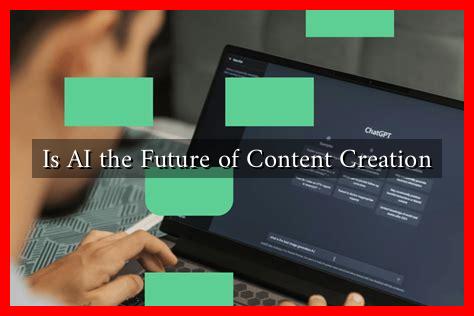-
Table of Contents
Is AI the Future of Content Creation?
In recent years, artificial intelligence (AI) has made significant strides in various fields, and content creation is no exception. From generating articles and social media posts to creating videos and music, AI tools are increasingly being utilized to streamline the content creation process. But is AI truly the future of content creation, or is it merely a passing trend? This article explores the current landscape of AI in content creation, its benefits, challenges, and what the future may hold.
The Rise of AI in Content Creation
AI technologies have evolved rapidly, enabling machines to perform tasks that were once thought to be exclusive to humans. In the realm of content creation, AI can analyze data, understand language, and even mimic human creativity. Some notable AI tools include:
- OpenAI’s GPT-3: A language model that can generate human-like text based on prompts.
- Canva’s Magic Write: An AI-powered tool that assists in creating visual content.
- Jasper: A writing assistant that helps marketers and content creators generate ideas and drafts.
These tools are not just novelties; they are being adopted by businesses and individuals alike to enhance productivity and creativity. According to a report by Statista, the global AI in content creation market is projected to grow significantly, indicating a strong trend towards AI integration in this field.
Benefits of AI in Content Creation
AI offers several advantages that can revolutionize the way content is created:
- Efficiency: AI can produce content at a much faster rate than humans, allowing for quicker turnaround times.
- Cost-Effectiveness: By automating repetitive tasks, businesses can save on labor costs and allocate resources more effectively.
- Data-Driven Insights: AI can analyze audience preferences and trends, enabling creators to tailor content to meet specific needs.
- Consistency: AI can maintain a consistent tone and style across various pieces of content, which is crucial for brand identity.
For instance, the Associated Press uses AI to generate thousands of news articles each year, allowing journalists to focus on more complex stories while the AI handles routine reporting. This hybrid approach has proven effective in maintaining quality while increasing output.
Challenges and Limitations
Despite its advantages, the integration of AI in content creation is not without challenges:
- Lack of Human Touch: AI-generated content can sometimes lack the emotional depth and creativity that human writers bring.
- Ethical Concerns: Issues such as plagiarism and misinformation can arise from AI-generated content.
- Dependence on Technology: Over-reliance on AI tools may lead to a decline in traditional writing skills among content creators.
Moreover, a study by Pew Research Center found that while many journalists see the potential of AI, they also express concerns about its impact on the quality of journalism and the potential for job displacement.
The Future of AI in Content Creation
As AI technology continues to evolve, its role in content creation is likely to expand. Here are some potential future trends:
- Enhanced Collaboration: AI tools will increasingly work alongside human creators, enhancing rather than replacing their capabilities.
- Personalization: AI will enable hyper-personalized content experiences, catering to individual user preferences.
- Multimedia Integration: AI will facilitate the seamless integration of text, audio, and video content, creating richer experiences.
Companies like Netflix are already using AI to analyze viewer preferences and recommend content, showcasing the potential for AI to create tailored experiences in the entertainment industry.
Conclusion
In conclusion, AI is poised to play a significant role in the future of content creation. While it offers numerous benefits such as efficiency, cost-effectiveness, and data-driven insights, it also presents challenges that must be addressed. The key to harnessing the power of AI lies in finding a balance between technology and human creativity. As we move forward, the most successful content creators will likely be those who can effectively integrate AI tools into their workflows while maintaining the unique human touch that resonates with audiences. The future of content creation may very well be a collaborative effort between humans and machines, paving the way for innovative and engaging content.

